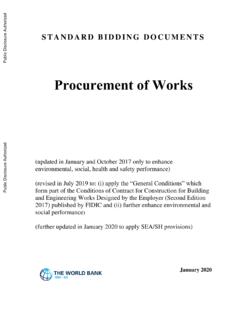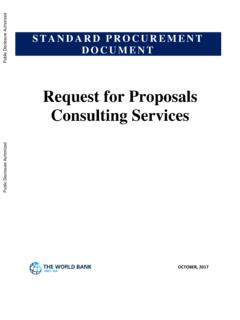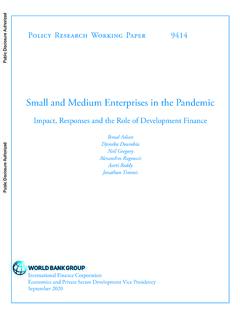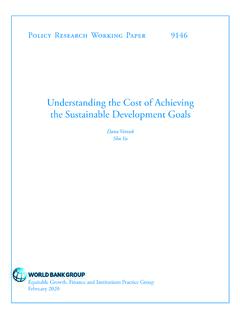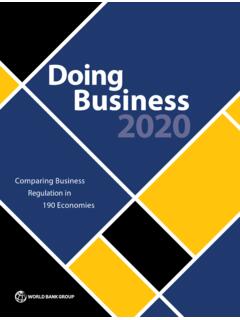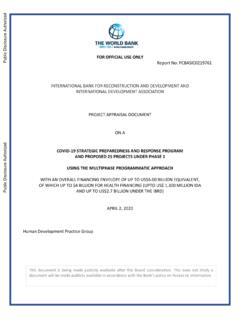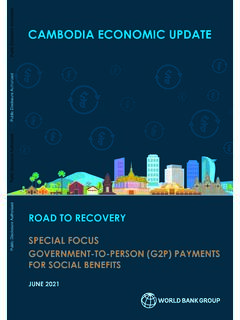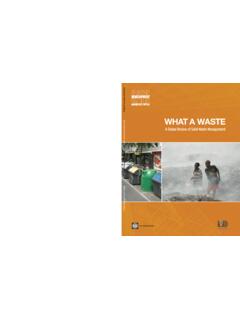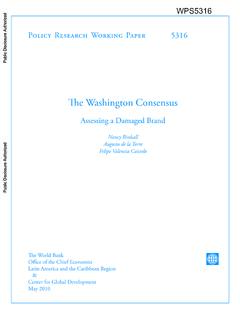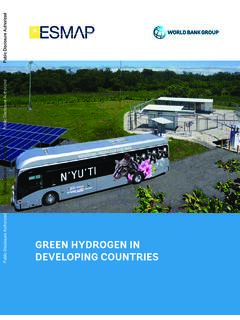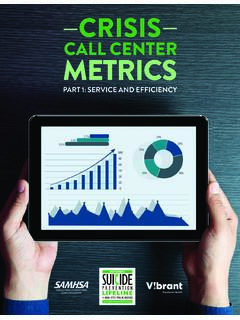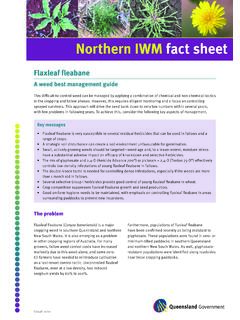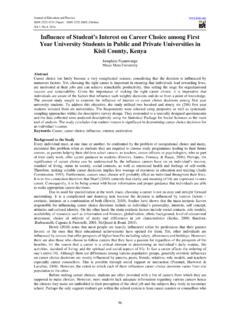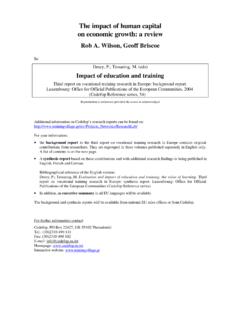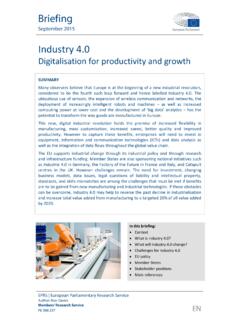Transcription of GENDER-BASED VIOLENCE An Analysis of the Implications …
1 GENDER-BASED VIOLENCE An Analysis of the Implications for the Nigeria For Women ProjectThe State and Peacebuilding Fund (SPF) is a global multi-donor trust fund administered by the World Bank to finance critical development operations in situations of fragility, conflict, and VIOLENCE . Over 150 grants and transfers have been approved in 38 countries for a total of US$277 million. The SPF also supports global Analysis , expert learning, and multi-stakeholder partnerships. The SPF is kindly supported by: Australia, Denmark, Germany, The Netherlands, Norway, Sweden, Switzerland, The United Kingdom, as well as Disclosure AuthorizedPublic Disclosure AuthorizedPublic Disclosure AuthorizedPublic Disclosure Authorized 2019 International Bank for Reconstruction and Development/The World Bank1818 H Street NW, Washington, DC 20433202-473-1000 | rights findings, interpretations, and conclusions expressed in this work do not necessarily reflect the views of The World Bank, its Board of Executive Directors.
2 Or the governments they represent. The World Bank does not guarantee the accuracy of the data included in this work. The boundaries, colors, denominations, and other information shown on any map in this work do not imply any judgment on the part of The World Bank concerning the legal status of any territory or the endorsement or acceptance of such herein shall constitute or be considered to be a limitation upon or waiver of the privileges and immunities of The World Bank, all of which are specifically and PermissionsThe material in this work is subject to copyright.
3 Because the World Bank encourages dissemination of its knowledge, this work may be reproduced, in whole or in part, for noncommercial purposes as long as full attribution to this work is given. Any queries on rights and licenses, including subsidiary rights, should be addressed to World Bank Publications, World Bank Group, 1818 H Street, Washington, DC 20433, USA; fax 202-522-2625; email: credits: Cover and pages 1, 6, 32, and 37: Arne Hoel, World Bank; page 10: Curt Carnemark, World Bank; page 33: World BankiContentsAcknowledgments.
4 IiiAcronyms and Abbreviations ..iv1 Introduction ..1 Rationale for the Study ..2 Structure of the Study: Social Ecological Model ..42 Methodology ..5 Study Limitations ..53 Legal and Institutional Context for GBV in Nigeria ..6 Policy and Legislative Frameworks ..6 From Policy to Practice ..94 Prevalence, Norms, and Drivers of GENDER-BASED VIOLENCE ..11 Prevalence and Perceptions ..11 Drivers ..19 Women s Economic Empowerment Programs ..255 Informal and Formal Services Available for Survivors ..29 Informal Services.
5 29 Formal Services ..306 . GBV Risks and Mitigation Plan ..32 Triggering Risks ..32 Recommendations for GBV-Sensitive Project Design ..33 Action-Oriented Risk Mitigation Plan ..34 Immediate Actions to Reduce Risk ..37 References ..39iiBoxes1 .1 Survivor-Centered Approach to Programming ..34 .1 Harmful Social Norms Around GENDER-BASED VIOLENCE ..214 .2 GBV Among Economically Active Women and Girls: Voices from Nigeria ..27 Figures1 .1 Social Ecological Model of Analysis ..44 .1 Prevalence of Sexual VIOLENCE ..114.
6 2 Prevalence of Intimate Partner VIOLENCE ..124 .3 Tolerant Attitudes Toward Wife Beating ..124 .4 Prevalence of Women in Polygynous Marriage ..144 .5 Children in Project States Involved in Economic Activities ..164 .6 Rates of Early Marriage in Project States Among Women ..194 .7 Community- and Household-Level Perceptions on Prevalence of GBV ..204 .8 State Profiles of Affected Persons ..204 .9 Impacts of Women s Economic Empowerment Programs in Nigeria and Their Implications for GENDER-BASED VIOLENCE ..265 .1 GBV Reporting Chain at the Community Level.
7 30 Tables2 .1 Selected Areas for Gathering Field Data ..52 .2 Focus Group Discussion Sample ..53 .1 Agreements on GBV and Sexual Exploitation and Abuse Adopted at the Federal Level in Nigeria ..75 .1 Community-Level Redressal Mechanisms for GENDER-BASED VIOLENCE ..29iiiAcknowledgments Varalakshmi Vemuru, lead social development specialist, GSURR, World Bank, led this work as the task team leader for the Nigeria For Women Project (P161364). This report was prepared by Farwah Qasim, social development specialist, with inputs from Wumi Asubaro, GENDER-BASED VIOLENCE (GBV) consultant.
8 It draws on the work of the World Bank-commissioned report Rapid Assessment of gender based VIOLENCE and Its Impact on Livelihoods and Women Economic Empowerment in Edo, Katsina, and Taraba States, (Nwadinobi, Makanjuola, and Nyukalu 2018), which informed the design of the Nigeria For Women Project. The field assessment was undertaken by Dr. Eleanor Nwadinobi, senior GBV consultant, as well as Habiba Makanjuola and Paul Nyulaku, researchers. We gratefully acknowledge the guidance and comments of Michael Ilesanmi, senior social development specialist; Rosa Maria Martinez, social development specialist; Verena Phipps, senior social development specialist; Diana Arango, senior GBV specialist; and Clara Alemann, senior GBV consultant.
9 The study was funded by the State and Peacebuilding Fund (SPF) also appreciate the extremely thoughtful comments and suggestions of external peer reviewers Comfort Lamptey, country representative, UN Women; Dr. Zubeida Abukbar, national program analyst, United Nations Population Fund; and Tosin Akibu, project director, Integrated Reproductive Health and Mentoring Project, FHI and Abbreviations AIDS Acquired Immunodeficiency SyndromeCEDAW Convention on the Elimination of All Forms of Discrimination against WomenFMWASD Federal Ministry of Women Affairs and Social DevelopmentGBV GENDER-BASED violenceILO International Labor OrganizationIOM International Organization for MigrationLGA Local Government AreaNFWP Nigeria For Women ProjectWAG Women s Affinity Group11.
10 Introduction GENDER-BASED VIOLENCE , or GBV, is one of the most oppressive forms of gender inequality, posing a fun-damental barrier to the equal participation of women and men in social, economic, and political spheres. As noted in Voice and Agency: Empowering Women and Girls for Shared Prosperity, the World Bank s Inter Agency Standing Committee defines GBV as an umbrella term for any harmful act that is perpe-trated against a person s will and that is based on socially ascribed ( gender ) differences between males and females (Klugman et al.)
